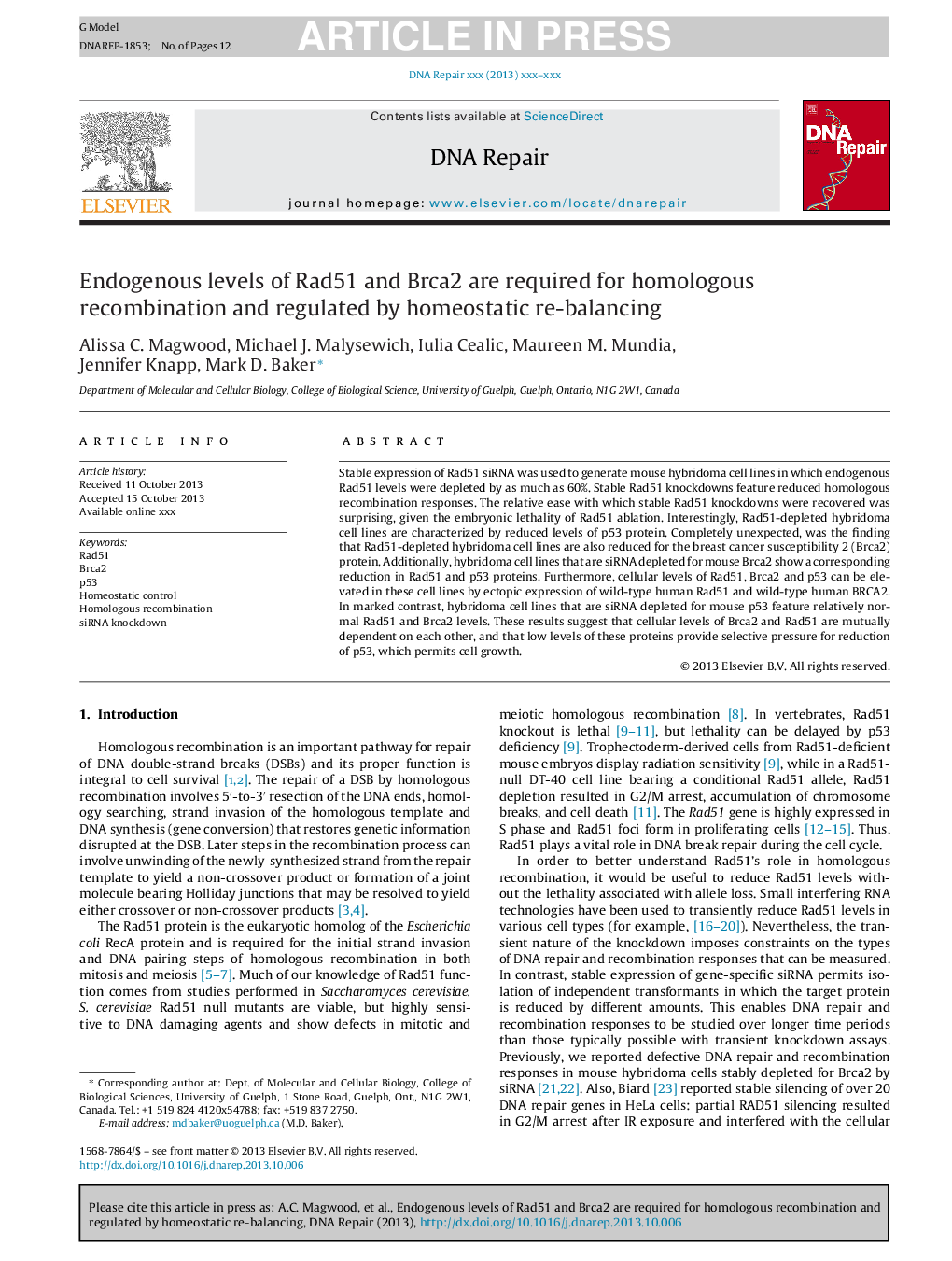| Article ID | Journal | Published Year | Pages | File Type |
|---|---|---|---|---|
| 10823351 | DNA Repair | 2013 | 12 Pages |
Abstract
Stable expression of Rad51 siRNA was used to generate mouse hybridoma cell lines in which endogenous Rad51 levels were depleted by as much as 60%. Stable Rad51 knockdowns feature reduced homologous recombination responses. The relative ease with which stable Rad51 knockdowns were recovered was surprising, given the embryonic lethality of Rad51 ablation. Interestingly, Rad51-depleted hybridoma cell lines are characterized by reduced levels of p53 protein. Completely unexpected, was the finding that Rad51-depleted hybridoma cell lines are also reduced for the breast cancer susceptibility 2 (Brca2) protein. Additionally, hybridoma cell lines that are siRNA depleted for mouse Brca2 show a corresponding reduction in Rad51 and p53 proteins. Furthermore, cellular levels of Rad51, Brca2 and p53 can be elevated in these cell lines by ectopic expression of wild-type human Rad51 and wild-type human BRCA2. In marked contrast, hybridoma cell lines that are siRNA depleted for mouse p53 feature relatively normal Rad51 and Brca2 levels. These results suggest that cellular levels of Brca2 and Rad51 are mutually dependent on each other, and that low levels of these proteins provide selective pressure for reduction of p53, which permits cell growth.
Related Topics
Life Sciences
Biochemistry, Genetics and Molecular Biology
Biochemistry
Authors
Alissa C. Magwood, Michael J. Malysewich, Iulia Cealic, Maureen M. Mundia, Jennifer Knapp, Mark D. Baker,
